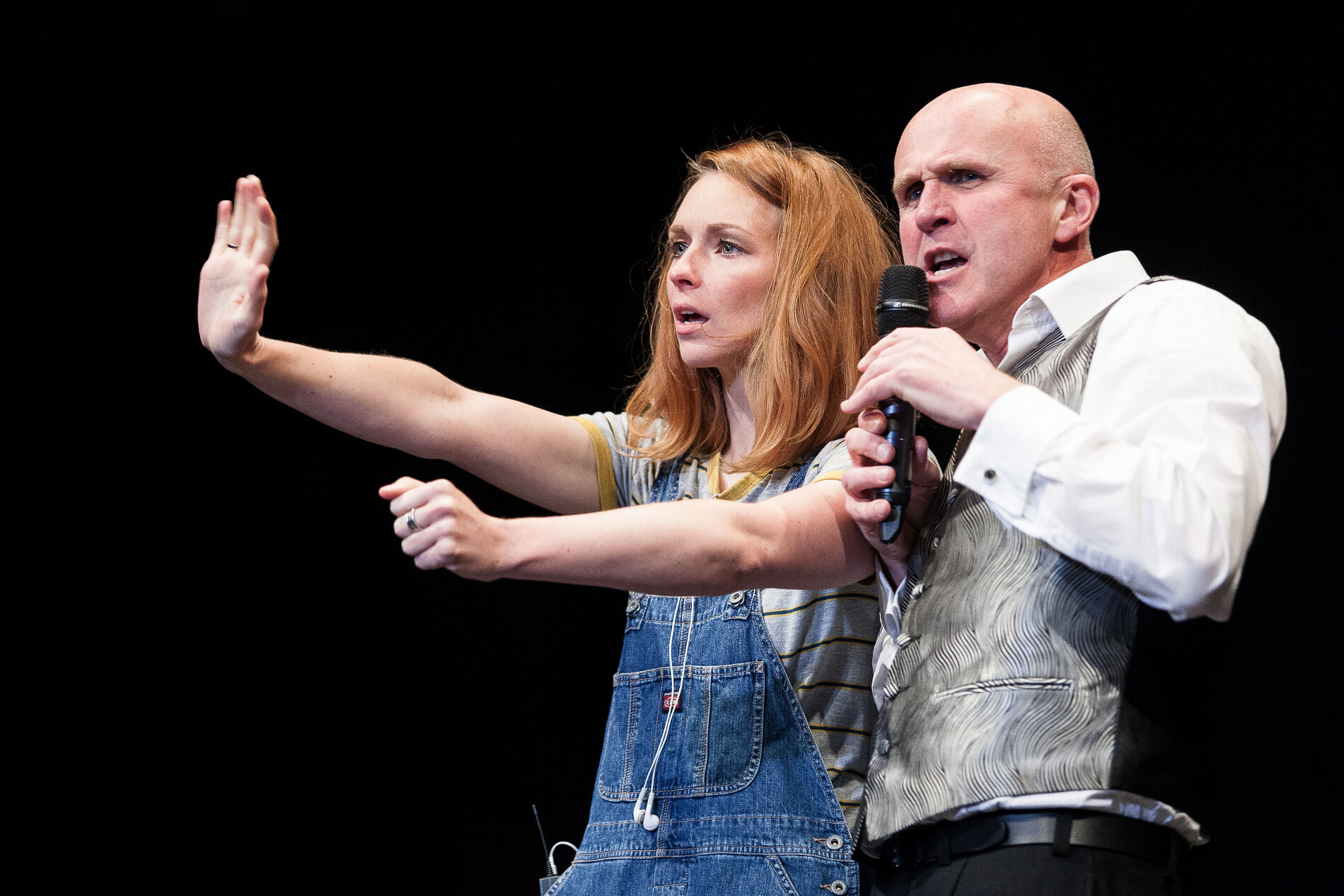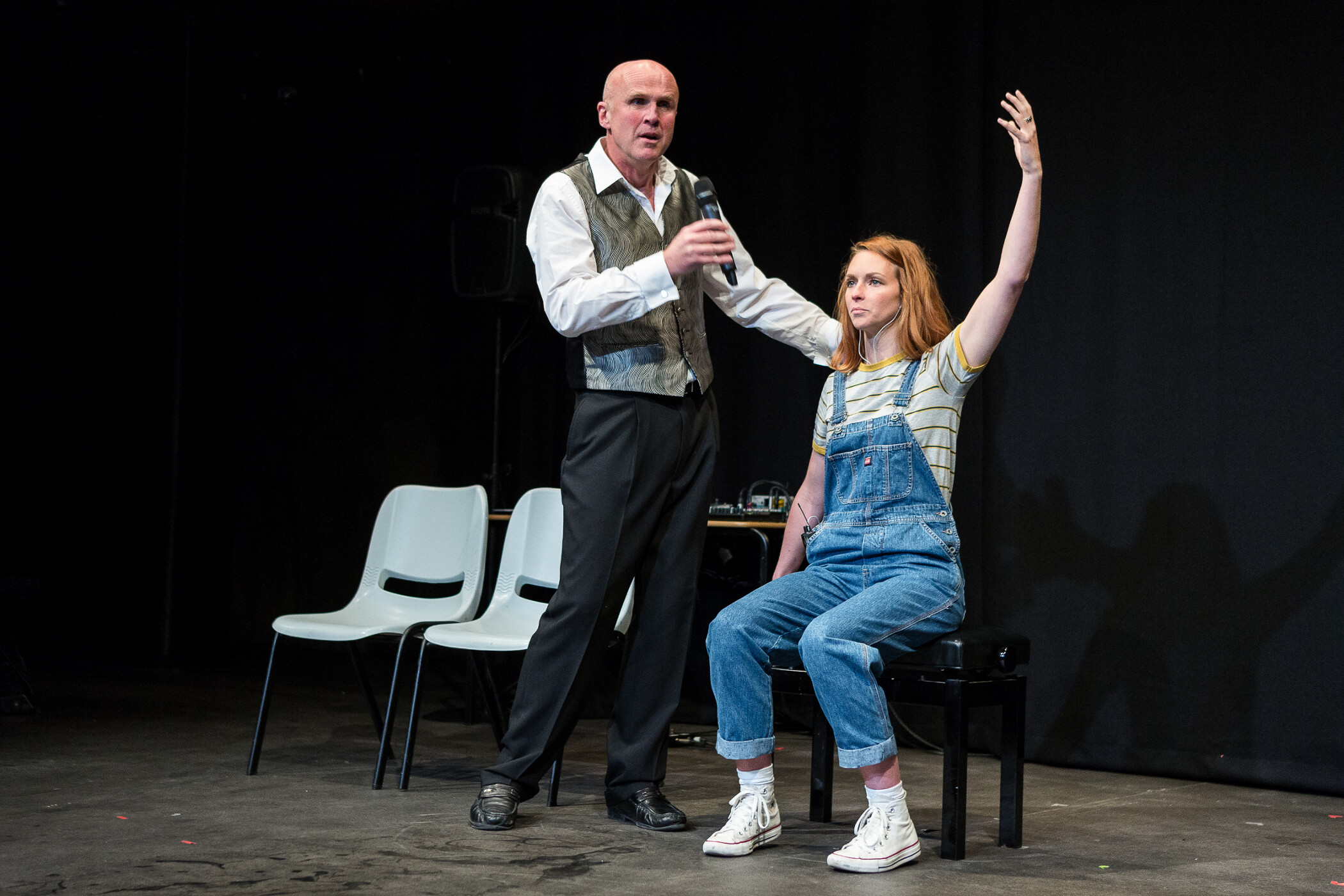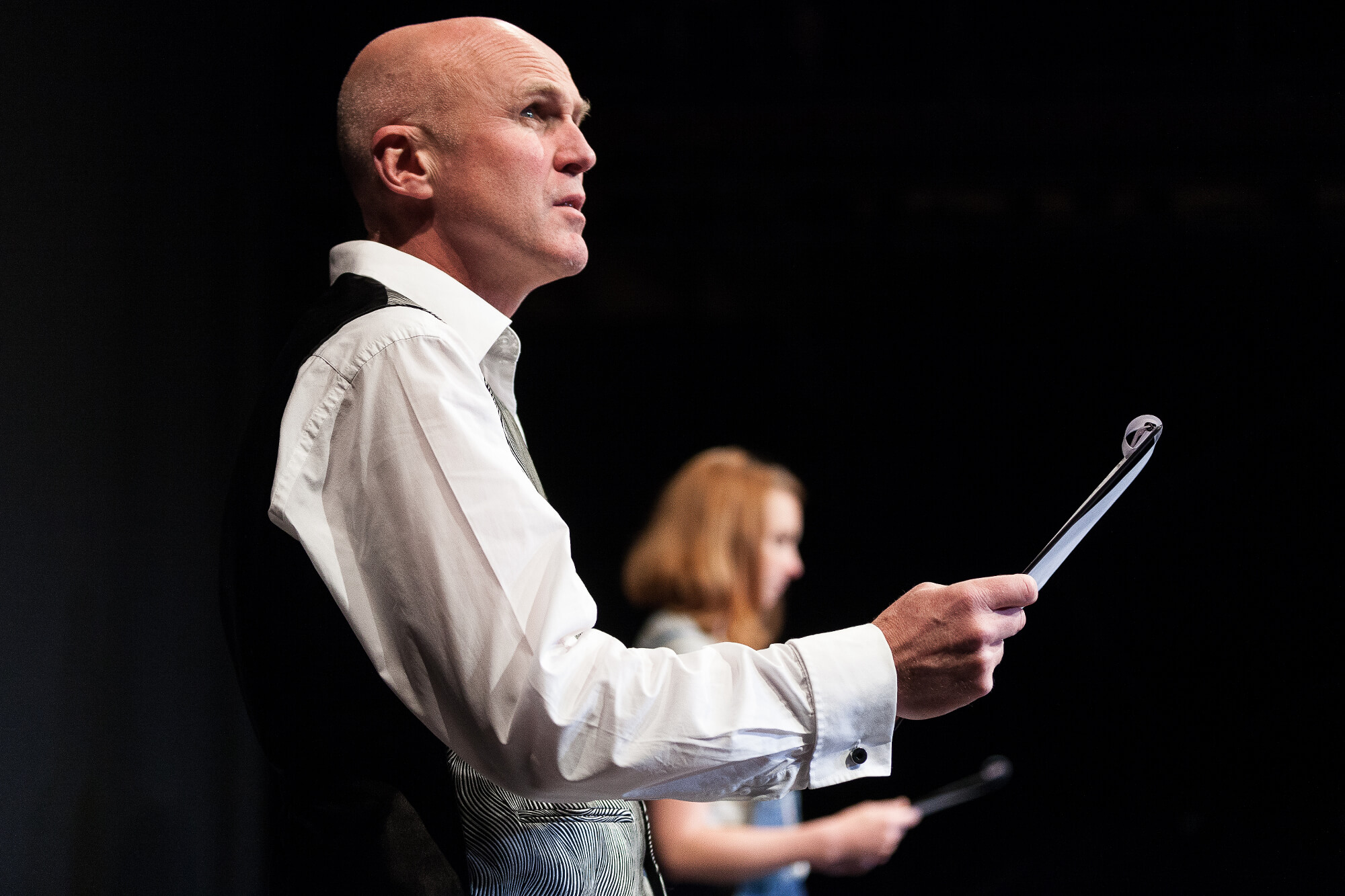About Time You Saw: An Oak TreeBy Charlotte Collins
Connor, the actor who has agreed to participate in Tim Crouch’s two-man show without reading the script until he appears live on stage, consults his clipboard. ‘But if it takes place nine months from now, isn’t there anything we can do to stop it?’ he reads. ‘No’, replies Crouch, delivering the final twist of the knife in the blurred realism of An Oak Tree.
The performance begins simply. The playwright, Tim Crouch, takes to the stage and invites a different guest actor to join him each night. They have met an hour earlier for an introduction and what must surely be a reassuring pep talk. He explains the process to the audience and introduces the story – he is a hypnotist. Tim’s character accidentally killed a young girl whilst driving, Connor is that girl’s father and he’s turned up at his hypnosis show. Taking place a year in the future, the girl was killed three months prior. And go.
I had expected improvisation, like Who’s Line is it Anyway but you know… about death. However, Connor is at no point left to his own devices – he is the puppet to Crouch’s master. Fed his lines either via headphones wired up to a microphone or prompted by a script that he is handed at relevant moments, sometimes he is directly being ordered to ‘say this’ by his fellow actor. Through the play’s unprecedented format, we are aware that Crouch has the upper hand, making no secret of his control over his victim – in ‘reality’ by handing him instructions and controlling the music from a visible soundboard, and ‘on stage’ through the metaphor of hypnosis. This creates a constant flux between fantasy and reality. Both scripted, the conversation between Crouch and Connor is as preconceived as that between hypnotist and father.
When the play ends, the stage lights are extinguished for the first time since the audience has entered the theatre. The actors take their bows and exit – no brief chat, no smiles of relief to counteract the quiet nervousness of the introduction. This simple act leaves you with an odd sense of betrayal, throwing into question if there ever was a ‘reality’ being depicted on stage at all. But with form so beautifully reflecting content, you can’t help but leave feeling that An Oak Tree is an un-missable piece of experimental theatre, in which the blurred boundaries of both theatre and acting are pushed to their limit in this intricate story of loss and suggestion.
Photography by Greg Veit








































